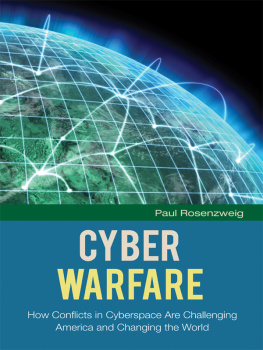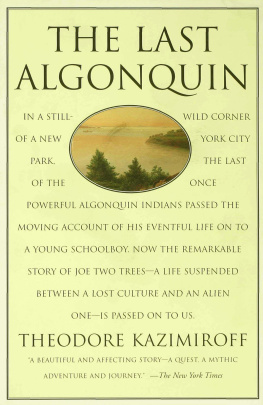Periodization and Sovereignty
THE MIDDLE AGES SERIES
Ruth Mazo Karras, Series Editor
Edward Peters, Founding Editor
A complete list of books in the series is available from the publisher.
Periodization
and Sovereignty
How Ideas of Feudalism
and Secularization
Govern the Politics of Time
Kathleen Davis

Copyright 2008 University of Pennsylvania Press
All rights reserved. Except for brief quotations used for purposes of review or scholarly citation, none of this book may be reproduced in any form by any means without written permission from the publisher.
Published by
University of Pennsylvania Press
Philadelphia, Pennsylvania 191044112
Printed in the United States of America on acid-free paper
10 9 8 7 6 5 4 3 2 1
Library of Congress Cataloging-in-Publication Data
Davis, Kathleen.
Periodization and sovereignty : how ideas of feudalism and secularization govern the politics of time / Kathleen Davis.
p. cm. (The Middle Ages series)
Includes bibliographical references and index.
ISBN-13: 9780812240832 (hardcover : alk. paper)
1. HistoryPeriodization. 2. HistoryPolitical aspects. 3. TimePolitical aspects. 4. Civilization, Medieval. 5. Civilization, Modern. 6. Sovereignty. 7. Feudalism. 8. Secularization. 9. HistoryPhilosophy. 10. HistoriographyPhilosophy. I. Title.
D16.9.D295 2008
For my family
This moment of suspense, this pokh, this founding or revolutionary moment of law is, in law, an instance of non-law. But it is also the whole history of law.
Derrida, Force of Law
Contents
Introduction
In the early eighth century, the Northumbrian monk and scholar now known as the Venerable Bede offered his own etymology for the Latin word tempus, time. As usual for him, he considers it in the plural: Times take their name from measure (tempora igitur a temperamento nomen accipiunt). This periodization, which is not entirely attributable to Bede of course, continues today to regulate calendars and political life.
In recent decades there has been much attention to the politics of time, and it has not come untethered from the problematic relation of history with the sacred. Indeed, studies of the politics of time have taken this relation as their conceptual limit, almost always expressed in the form of a divide between a religious Middle Ages and a secular modernity. The arguments center upon historical consciousness and follow along these lines: medieval people subordinated all concepts of time to the movement of salvation history and the inevitability of the Last Judgment, and therefore had no sense of real, meaningful historical change; under such circumstances history is already determined, and a medieval politics of time is therefore an oxymoron. So commonplace are these ideas thateven though the Middle Ages is well understood to be a constructed categorythey have taken on the self-evidentiary status of common sense.
A principal goal of this book is to ask why, in the face of all challenges to teleological and stage-oriented histories, do the monoliths medieval/religious/feudal and modern/secular/ capitalist (or developed) survive, and what purposes do they serve? What does the regulating principle of medieval/modern periodization hold in place, and what does it help to obscure? What political assumptions go unchallenged when subjugation and lawlessness are labeled feudal and aligned with the Middle Ages? What cultural paradigms flourish when a Christian politics of time such as Bedes is declared apolitical, or pre-political? A sincere engagement with these issues requires that the division medieval/modern be put into question together with categories such as feudal and secular, with which it was mutually constituted, and which it holds in place.
Ironically, the boldest, most celebrated critiques of rigid historical paradigms usually reinforce rather than disrupt this periodization. In his justly famous critique of anthropology in Time and the Other, for example, Johannes Fabian sets out this claim, with which few would now disagree: If it is true that Time belongs to the political economy of relations between individuals, classes, and nations, then the construction of anthropologys object through temporal concepts and devices is a political act; there is a Politics of Time. Fabian considers it simply achieved. Like Bede, he thereby grounds a political order by attaching it to a relation with the sacred, at the point of a division in time. The fact that this attachment to a relation with the sacred takes the form of a claim to detachment does not alter this fundamental similarity.
This depoliticization must be studied, I suggest, in tandem with its temporal correlate: the constitution of a religious, pre-political Middle Ages. The sleight of hand that facilitates the privileged universalism under which only European politics can identify as secular, and only secular politics can be legitimate, is medieval/modern periodization. By periodization I mean not simply the drawing of an arbitrary line through time, but a complex process of conceptualizing categories, which are posited as homogeneous and retroactively validated by the designation of a period divide.
The grounding of political order upon periodization is the main concern of this book. The sacred/secular divide presupposed by Fabian has long been a commonplace of European history; yet in world politics today and in recent theoretical debate the categories it presupposes generate violence and contention. Likewise, the period concept of the feudal Middle Ages adjudicates conceptions of economic as well as political development, and ever more frequently acts as a foil for democracy.
The problem, which has been obvious for decades, is that units such as sacred-medieval-feudal and secular-modern-capitalist (or democratic) exercise exclusionary force, and require alignment with historically particular cultural, economic, and institutional forms for entrance into an ostensibly global political modernity. Taking up related concerns, medievalists have demonstrated how divisions such as medieval/modern or
These questions address political struggles and disparities todayparticularly those pertaining to religious violencebut I argue in this book that they cannot be separated from the processes that have constituted the idea of the Middle Ages and its categories. No attempt to grapple with these political dilemmas can afford to ignore the function of medieval/modern periodization as a regulating principle and thereby remain open to the dissimulation of readings such as Fabians, which postulate historical breaks as fully achieved and outside politics. Instead of perceiving that the narrative of secularized time simultaneously produced an other time and an Other of anthropology, Fabians argument, like many similar and important critiques of modern sciences, reinscribes one of colonialisms most cherished stories. The conceptual boundaries constituted by this intellectual history temper current theoretical efforts to deal with some of the most intractable political challenges, and indeed bear some responsibility for that intractability. My concern in this book is not to revise definitions of the medieval or the modern, but to address the occlusions and reifications instantiated by the periodizing operation itself, and to show why this matters today. At least two histories of periodization are implicated here: one that generates and protects cultural and political categories by grounding them upon a division between medieval and modern; and one that grounded Christian political order by attaching it, by way of the
Next page










